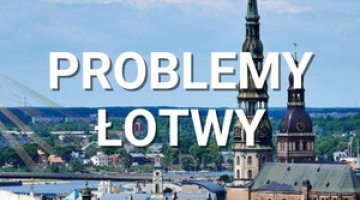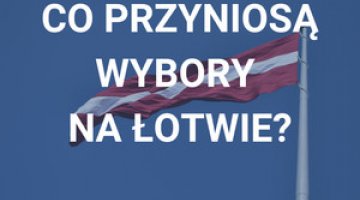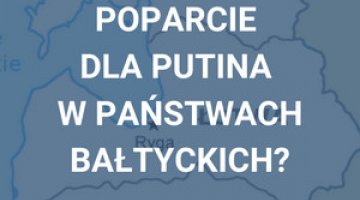The referendum on the Russian language in Latvia
On 18 February approximately 75% of those who took part in the referendum rejected the proposals of the amendments to the constitution which would establish Russian as the second state language along with Latvian and the second official language in local government. The turnout was very high and reached 70% but only people who have Latvian citizenship could vote. The referendum was initiated by the “The Native Language Society” which represents a group of approximately 35% of Latvia's population which recognise Russian as their native language (including people who have the status of “non-citizen” and represent 14% of the population in Latvia). They were supported by the Harmony Centre led by Riga's mayor, a naturalised Russian, Nils Ušakovs. The Harmony Centre has the largest number of Members of Parliament and is considered in Latvia to represent mainly the interests of the Russian minority (in majority they are Russians but also Ukrainians, Belarusians and Poles). The president and other people holding the highest offices in the country were opposed to the referendum.
-
The mass participation in the referendum of both ethnic Latvians (who believe that the extension of the use of Russian could threaten Latvian national identity) and Russian speakers prove that it is not currently possible to reconcile positions on raising the status of Russian. This leads to the perpetuation of the ethnic division. The referendum provided Latvian nationalists with new arguments about the defence of national values. It may also encourage the radicalisation of the positions of Russian speakers who have the impression of being excluded from society.
-
The Russian-speaking population eagerly turns for help to Moscow. Russia verbally supports its compatriots but although it is able to exert more pressure on the Latvian government in their defence, at the moment it does not make use of these possibilities. Despite the dispute over the rights of the Russian-speaking section of the population the Latvian government has been striving to have good relations with Moscow, including economic co-operation.
-
The demand to grant Russian the status of state language is a manifestation of the discontentment of this minority which feels marginalised in society. Latvia is governed by the centre-right and nationalists who are not well disposed towards the minority –seen as a group which is not fully loyal to the state and which constitutes a legacy of the Soviet occupation of the country. The Russian-speaking part of the population is dissatisfied with the decision made by the Latvian parties which have established a wavering majority but, no matter what, without the participation of the winner of the election, the Harmony Centre. However, the fact that the Harmony Centre identifies strongly above all with the problems of the Russian speakers causes the party to be alienated politically, which does no good either to the Harmony Centre itself or to its followers.
- The issue of the referendum has a wider regional context. The right which is in power in Lithuania have been satisfied with the mobilisation of the Latvian voters to defend the state language since the Lithuanian government itself does not agree to establish Polish as an auxiliary language in the administration and limits the teaching of Polish. It can be expected that the further development of the dispute between the governments of the two Baltic states and their minorities will be explained by Riga and Vilnius as the fight of small nations to preserve their still threatened national identity.





